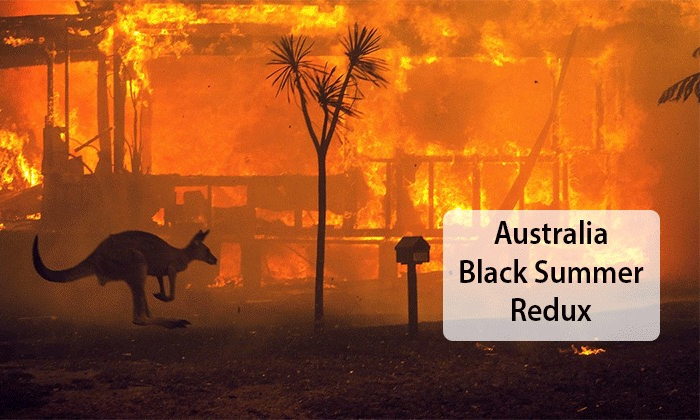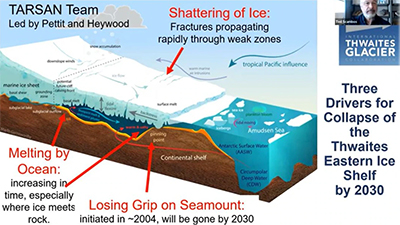Black Summer 2.0 In Australia?
Most of the rest of the world has forgotten Australia’s summer of 2020, when wildfires driven by apocalyptic winds and 120°F temperatures killed hundreds of people, torched 72,000 square miles and 3 billion animals and cost in the neighborhood of $88 billion. The firestorms moved so fast that fleeing Australians were incinerated in their vehicles trying to escape.
The Red Hot Chile Peppers Song “Black Summer” metaphorically commemorates the event, which was a wakeup call to many in the land down under. Some woke up, some expedited the world’s largest coal mine and 116 new fossil fuel projects.
Now, many wonder if a repeat of the catastrophe is in the near future. On December 8, temperatures at Sidney airport approached 110°F, with 85 bushfires still burning in the state. Jasper, a very early Cat 4 cyclone is churning south toward Queensland, threatening a landfall this week.
Australia has always had crazy climate extremes, but the last decade has moved into a range that can only be called apocalyptic.
These events are unfolding a day after scientists from the EU climate service Copernicus announced 2023 would be the hottest year on record AND as the Cop(Out) 28 joke conference – hosted by one of the planet’s largest oil producers – makes a mockery out of any meaningful effort to mitigate the climate crash.

Half a million Somalians displaced by floods

A month of record rains have turned roads to rivers in Mogadishu and other cities, destroying infrastructure and killing hundreds. The fall harvest has been wrecked. This catastrophe follows record drought earlier in the years. Famine will follow.
Spain’s avocado harvest threatened by heat
The combination of ever increasing temperatures and drought is killing thousands of avocado trees in one of the world’s major producing countries.
Greenland ice shelves that block land ice are down to 5

Greenland’s floating ice platforms — which hold back trillions of tons of ice that could cause sea level rise — are in stark decline, according to a new study.
Global shipping is threatened by dropping water levels at the panama canal and major rivers
The Mississippi, Amazon and Rhine have experienced diminished commercial traffic, affecting global shipping for a wide range of products.